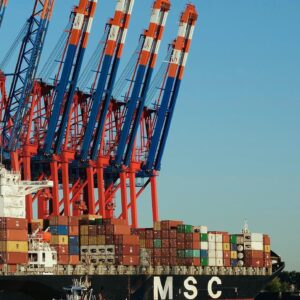
Evaluating Air Cargo Solutions | Strategic Optimization & Feasibility Consulting
ASCELA offers expert strategic advisory services to help businesses assess the feasibility of air cargo operations. Our team of seasoned consultants provides data-driven insights and comprehensive analyses to evaluate whether air freight is the right solution for your logistics and supply chain needs.
Air cargo offers unique advantages, including speed, global reach, and reliability, making it an essential option for time-sensitive, high-value, or perishable goods. However, integrating air freight into your logistics operations requires careful consideration of various factors such as costs, infrastructure, regulatory requirements, and market demand. Our experts analyze current market conditions, demand trends, and growth opportunities to help you assess the potential for air cargo in your supply chain.
Let ASCELA be your trusted partner in navigating the dynamic world of air cargo, turning logistics challenges into opportunities for growth and innovation.
Air Cargo | Service Offerings
Feasibility Assessment
Air Freight Terminal Infrastructure Evaluation
Conduct a comprehensive assessment of current air freight terminal facilities, identifying strengths, weaknesses, and areas for operational improvement
Terminal Capacity Assessment & Optimization
Assess the effectiveness and condition of cargo handling equipment, recommending upgrades or replacements to improve efficiency and minimize downtime
Facility Layout & Workflow Design
Analyze and redesign air freight terminal layouts to optimize workflow, reduce congestion, and streamline cargo processing for faster turnaround
Technology Integration & Automation Assessment
Review and recommend the integration of automation and technology solutions such as cargo tracking, robotic handling, and AI-powered forecasting
Operational Efficiency & Cost Reduction
Review terminal operations to identify inefficiencies and recommend process improvements that reduce costs, enhance throughput, and optimize resource allocation
Upgrade & Modernization Strategy
Develop a strategy for upgrading or modernizing existing air freight terminals to incorporate new technologies, improve efficiency, and enhance capacity


Supply Chain Operational Planning
Air Cargo Handling Equipment Review
Assess the effectiveness and condition of cargo handling equipment, recommending upgrades or replacements to improve efficiency and minimize downtime
Compliance & Regulatory Review
Assess air freight terminal operations for compliance with local, national, and international regulations, ensuring adherence to safety, security, and environmental standards
Airport-to-Terminal Connectivity Assessment
Analyze the connectivity between the airport and air freight terminals, recommending solutions to improve transportation efficiency and reduce bottlenecks
Terminal Performance Monitoring
Develop key performance indicators (KPIs) to monitor and optimize terminal performance, ensuring high levels of operational efficiency and customer satisfaction
Temperature-Controlled Storage Assessment
Evaluate temperature-controlled storage facilities for air cargo, ensuring compliance with international standards for handling perishable and sensitive goods
Risk & Contingency Planning
Identify potential operational, security, and safety risks within terminal facilities and develop comprehensive contingency plans to mitigate these risks









